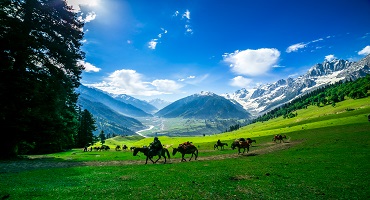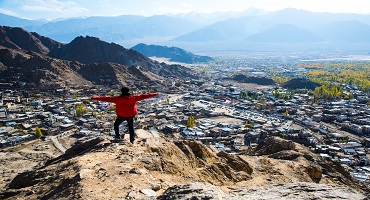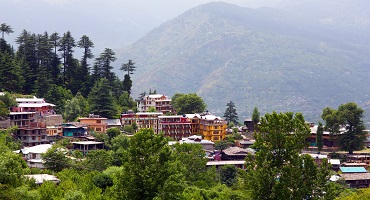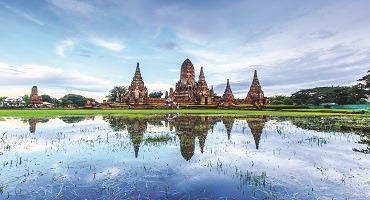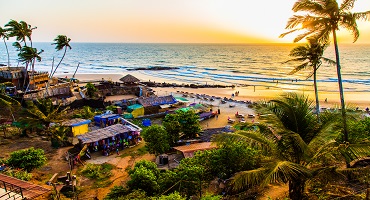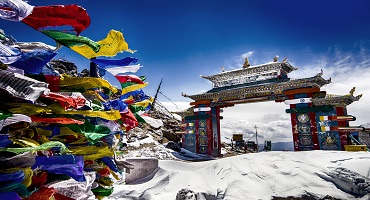An oasis situated on a mountain, in the desert
This is not a mirage. This is a historic desert town that sits high up in the mountains, surrounded by lush forests, with flowing waterfalls and full lakes, towering peaks and beautiful temples, marvellous forts and a teeming wildlife sanctuary. Mount Abu, in the Aravalli Mountains of Rajasthan, is yet another tourist gem of India’s most colourful state — and arguably its rarest. For its roots trace as far back as mythology!
Mount Abu is where you can experience the ultimate holiday, with not only immense history, tradition and spirituality to explore, but nature, adventure and culture to keep you engaged. So, the next time you’re touring Rajasthan, or you’re looking for a few delightful days away from city life, this is the place to be.
| Mount Abu Tourism : A Quick Overview |
| Continent |
Asia |
| Official Language |
Rajasthani, Hindi |
| Dial Code |
2974 |
| Population |
22,943 (As of 2011) |
| Currency |
Indian Rupee |
| Time Zone |
UTC+5:30 (IST) |
| Area |
290 km² |
Highlights of Mount Abu:
Attractions of Mount Abu:
Mount Abu is littered with exotic attractions that would make any travellers wish list. Here are some of the ones you simply cannot miss —
- Dilwara Temples - A spectacular feat of marble architecture, the Dilwara Temples are a sacred pilgrimage site for Jains, but also a top attraction for tourists visiting Mount Abu. There are 5 temples in the complex, each dedicated to a different saint of the faith.
- Achalgarh Fort - The ruins of this medieval era fort, fuels the wandering spirit. Its surviving structures still exude grandeur and it is post-worthy from every angle! Proximity to other tourist spots like Mandakini Lake and the Kantinath Temple make this a must visit.
- Guru Shikhar - About 15 km from the city centre is Mount Abu’s highest peak. Right at the top of its 1722 metre height, lies the Temple of Guru Dattatreya. With 300 steps to climb, this site is hugely popular for its beautiful views, cultural value and engaging experiences.
- Nakki Lake - Even though Nakki Lake is man-made, it is considered sacred. Especially so for the Garacia Tribe of Rajasthan, who worship their ancestors, here, to this day. For tourists, the lake is open every day from morning to evening for boat rides and guided tours.
- Mount Abu Wildlife Sanctuary - Mount Abu is one of the greenest zones you’ll find in all of Rajasthan and luckily that’s been preserved. The Wildlife Sanctuary is therefore a must-visit attraction, giving you the chance to spot everything from leopards and hyenas to porcupines and hedgehogs — and countless avian species too! The best time to tour the park is from February to June.
Heritage of Mount Abu:
For those culturally inclined, Mount Abu has plenty to offer. Spend your days temple hopping or monument hunting. Spending time at sites, especially with a guide, will leave you enchanted by the tales of ancient folklore. The town is also blessed with natural heritage, like forests, lakes, rivers and waterfalls, which gives you plenty of activity to immerse yourself in.
Cuisine of Mount Abu:
As this is a site with much religious significance, vegetarian food is predominantly served across the town. However, some private hotels or services do provide non vegetarian options. The local Rajasthani and Gujarati preparations are highly recommended, as they’re made from the true flavours of the land.
Shopping in Mount Abu:
Rajasthan is known for its handicrafts, jewellery and textiles and this holds true in Mount Abu as well. Roaming the markets must surely be on your agenda, as you could come away with bargain deals on everything from delicate woodwork to colourful bangles, exquisite handmade clothing to precious stone souvenirs.
Interesting facts about Mount Abu
- Mount Abu is a mythologically and historically significant place.
- It is the spiritual home of the Gurjars and the Rajputs.
- It is the spiritual base for the Brahma Kumaris.
- It is Rajasthan’s only hill-station, located along the Gujarat border.
- Guru Shikhar is Mount Abu’s tallest peak, at about 1722 metres.
- The Summer, Winter and Gangaur festivals are big annual celebrations.
- Temples, monuments, nature, wildlife and adventure are the highlights of Mount Abu.
Location of Mount Abu:
In one of the most culturally effervescent states of India, you can find many spectacular sights of nature, history and heritage. Including an ever-green hill-station amidst a desert landscape. Mount Abu sits in the Aravalli Mountain Range, in the Sirohi district of Rajasthan, near Gujarat border. Most of the city is based on a plateau, with the surrounding regions having everything from rivers and waterfalls to wildlife reserves and forests.
Best time to visit Mount Abu:
Just by virtue of being a hill-station, you know Mount Abu has pleasant weather conditions for most part of the year. Even surrounded by desert down below, the town stays cool in the summers, with light showers in the monsoon and really chilly winters. It’s best to plan a tour during the season that best suits your interests.
How to get to Mount Abu
By Air : To fly to Mount Abu, you have to land 210 km away at Udaipur Airport, or Maharana Pratap Airport as it is also known. All the main domestic carriers have flights arriving here on a daily or weekly schedule from most major cities. Once you land, taxis and buses are available for hire that drive you to the hill-station.
By Road : The roads leading up to Mount Abu are surprisingly well-maintained, so you can easily reach the destina-tion via car or bus. The duration of the journey depends on where your drive begins, but it does offer the advantage of one’s own space and timing. Private and public buses ply the same highways, for which tickets can be booked in advance.
By Train : Arriving to Mount Abu by train is often considered more convenient than air travel, considering you arrive into Abu Road Station merely 28 km from the city. Trains from big cities like Mumbai, Ahmedabad, Delhi, Jodhpur, Kolkata and more, pass by Abu Road, so finding a train is easy from any corner of the country.
History of Mount Abu:
The story of Mount Abu is steeped in mythology, with its modern name derived from the ancient ‘Arbu-daanchal’ — a home of many saints. Its mentions go as far back as the Puranas, and many gods and god-desses are said to have visited these lands. With this deep history, the town later came under the care of the Gurjars, Mughals and Rajputs for various different periods. Today, Mount Abu tells its tale through the remnants of this long and storied past that still stand today, drawing in millions of travellers every year.




